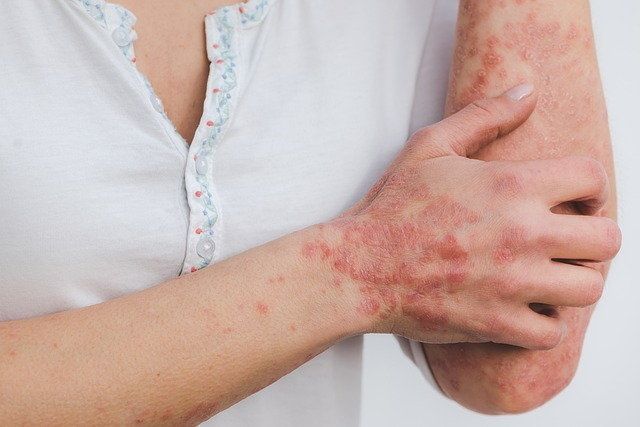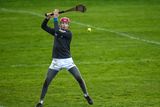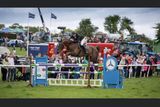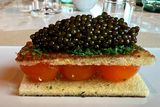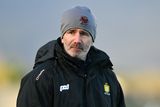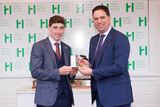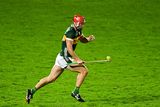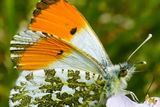Céad míle fáilte?
28-year-old Úna-Minh Kavanagh grew up in Tralee after her mom, Noreen, adopted her from a Vietnamese hospital. After the launch of her book 'Anseo' in Tralee library last week, Úna-Minh spoke to Tadhg Evans
On an early summer's day in 2013, 21-year-old Úna-Minh Kavanagh was standing on Dublin's Parnell Street when a boy, part of a group of some 10 teenagers, called her "a f***ing ch*nk". He grabbed her face and spat on her.
As Úna-Minh wiped his spit from her hair and skin, the boy and his friends laughed and walked away. Nobody on the street stopped to comfort the Tralee woman.
Her account of this incident in her new memoir, Anseo, makes for the book's most powerful section. But this moment and countless other encounters with racism - online or offline, 'casual' or more 'direct' - fall short of dominating her story.
After being adopted from a Vietnamese hospital 28 years ago, Úna-Minh spent a wonderful childhood in Tralee with her mother Noreen and grandad, Paddy. Indeed, she found it harder to write about her grandad's death than about the ugliness she has faced on Parnell Street and elsewhere.
"I had addressed it [Paddy's death] at the time in 2006 and had gone through the process - but now I had to go back and do every step of what happened that day," she tells The Kerryman of writing about the Baile na nGall man, who served as a Garda in Tralee from 1949 onwards.
"I had to go through the motions of rereading his appreciation, talking to my Mom about it, talking to my cousins about it, and how everyone was dealing with it - because I know I wasn't dealing with it at the time.
"He deserved a book about him. I'm so sad that nobody came to him and got his story down properly - so I'm happy that I at least have some chunk of him here."
Paddy's influence on her life and on her book will be apparent even to those who don't turn to page one. The cover shows him sitting on a grassy ditch - set against a typically scenic Corca Dhuibhne background - and he's a picture of happiness with his arm around his grand-daughter. Úna-Minh proudly sports his caipín, her smile just as wide as grandad's.
It was Úna-Minh's mother, Noreen, who captured the moment.
In 1991, Noreen travelled to Bach Mai Hospital in Hanoi, Vietnam, as a single woman with dreams of motherhood. Úna-Minh - whose birth-mother was likely unmarried and too young and too poor to look after a child - was just three days old when she first met Noreen. As Úna-Minh says, they found each other in a city of 7.5million people.
"It's incredible," Úna-Minh says. "I was also not the first baby she saw. I think she had a few days of going around to orphanages and other places.
"The people at the hospital were incredibly supportive. They never asked for money; it wasn't like that. They just wanted to find a really good home for me."
Once the adoption process came together, a six-week-old Úna-Minh, previously destined for a Vietnamese orphanage, was heading instead for St Brendan's Park. She would go on to attend primary and secondary school in Tralee before spending four years as a student of Irish and Journalism at Dublin City University (DCU).
Though she speaks fondly of Dublin, where she lived for 10 years, previously rare encounters with racism became more frequent upon moving to the capital.
"Maybe it's a population thing, or maybe it's because my mom and granda were so respected in Tralee, but I noticed it a lot more when I moved," she says. "I was taken aback because of the perceived diversity of Dublin, the perception that we're always happy to say 'Céad Míle Fáilte', but there's so much racism and unseen racism that people experience on the streets or in certain parts of the city.
"It's sad because we [Irish people] have emigrated to so many countries and experienced discrimination abroad. I don't get why some of us are racist; it makes no sense.
"I find, due to today's politics worldwide, it's much 'easier' to be a racist nowadays. It's 'okay' because you'll get away with it; nobody will challenge you. A lot of times, people will fall back on 'freedom of speech' - but that doesn't equal freedom to hate.
"It's depressing. And because it's happened to me so many times, it's so boring. That may seem a strange word to use, but we go through this over and over, and it just becomes commonplace."
Úna-Minh today lives in Dundalk with her partner, Pádhraic, and is a freelance journalist who has worked for, amongst others, TG4 and trade union Fórsa. Since joining Twitter a decade ago, she has built a robust online profile and has used this to promote the Irish language - a passion of hers and another example of her Irish-speaking grandfather's influence - in accessible, contemporary ways.
Her #frásaanlae (phrase of the day) efforts have helped her build a following of over 12,000 Twitter users, and she regularly combines video-gaming with Gaeilge on the 'Twitch' streaming service.
Embracing the web, however, has left her more exposed to the world's losers, and 'Anseo' draws attention to some of the most outrageous racism she has sustained online.
"Initially it used to make me angry, not upset," she says. "I feel like sometimes I've fought so long to be accepted as an Irish person - and then, especially online, I get told I can never be Irish.
"At this stage, I don't get dragged into arguing with these people. It can be upsetting, but I know I'm not going to change their mind, it's not my job to change their mind, and I have far more people who support me and don't care what these people are saying.
"At the same time, I do think it's important to highlight it because lots of people don't know it's happening. A lot of people say you're playing the 'race card' if you call it out and, also, they say 'If that happened to me, that's not how I'd deal with it'. Some online trolls get excited if you protect your tweets or take a break from Twitter; they see it as a victory. That leaves a tough balance because you don't want to give them that victory, but you also have to look after your mental health.
"The biggest thing I'd like people to take from 'Anseo' is that not all Irish people are white. We all have very different backgrounds. I'm 100-per-cent Irish, 100-per-cent Kerry. That's why it was vital for me to launch the book in Tralee - around my friends, family, neighbours, and teachers."
The Dublin launch of 'Anseo' takes place today (October 30) in Eason's, O'Connell Street. The book is available online from www.easons.com and from publishers newisland.ie; as well as from O'Mahony's book store, Tralee. Úna-Minh will speak in The Dingle Bookshop from 1pm on November 24 as part of the Dingle Literary Festival.

